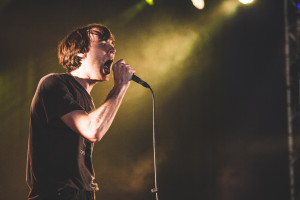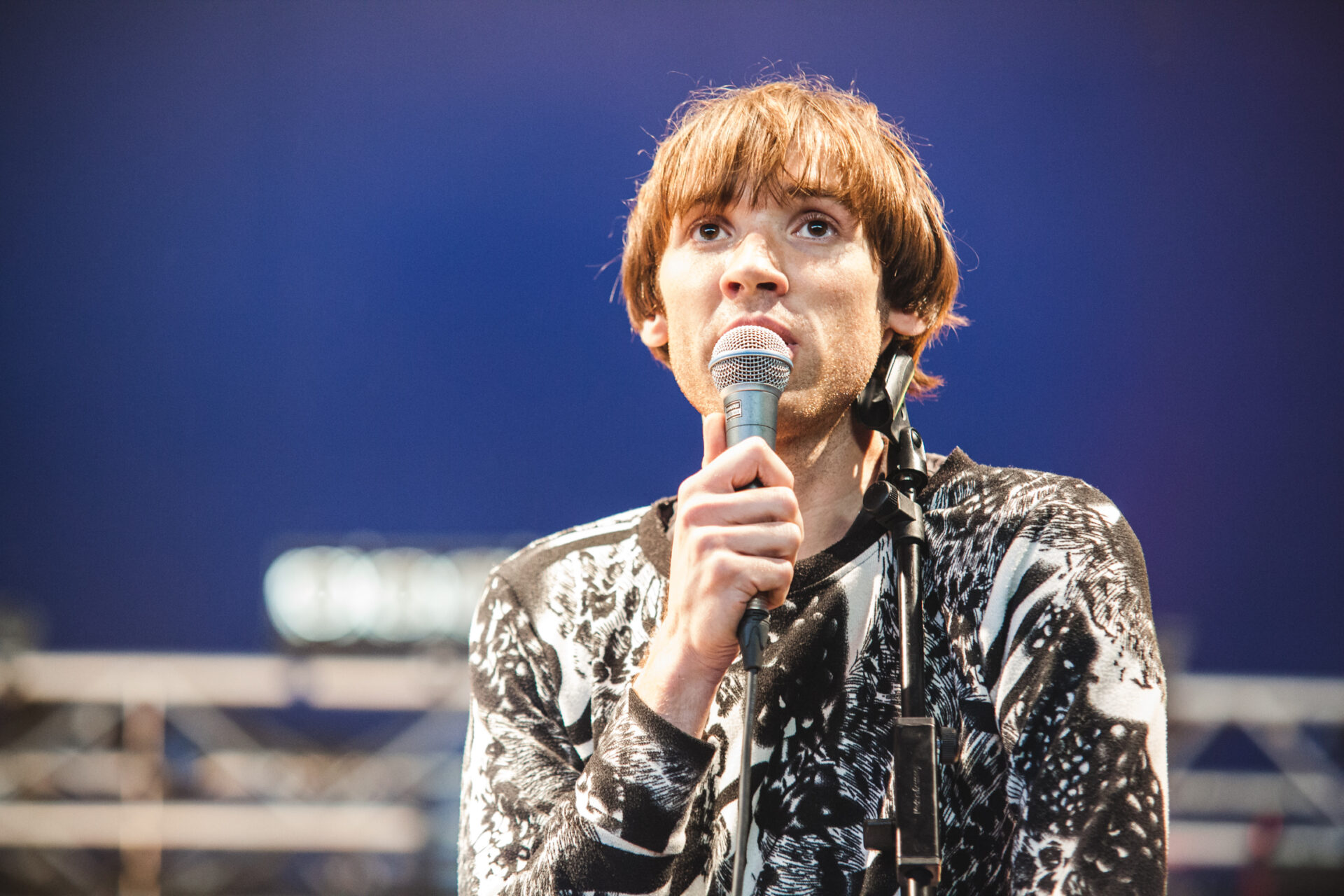 Meilyr Jones immediately strikes you as someone almost terrifyingly musically gifted. You feel you’re in the presence of a very special being. Yet, he is probably one of the most humble artists you’re likely to meet. His first success came with the band Radio Luxembourg (later known as Race Horses) he formed whilst still at school. His credits include time studying at the Royal Academy of Music, playing live with Gruff Rhys‘ Neon Neon, working with Stealing Sheep and Gorky’s Zygotic Mynci‘s Euros Childs.
Meilyr Jones immediately strikes you as someone almost terrifyingly musically gifted. You feel you’re in the presence of a very special being. Yet, he is probably one of the most humble artists you’re likely to meet. His first success came with the band Radio Luxembourg (later known as Race Horses) he formed whilst still at school. His credits include time studying at the Royal Academy of Music, playing live with Gruff Rhys‘ Neon Neon, working with Stealing Sheep and Gorky’s Zygotic Mynci‘s Euros Childs.
Two years on from the split of Race Horses, Meilyr Jones is back as a solo artist signed to Moshi Moshi and working an a new ambitious project born out of an Italian adventure.
I’m guessing this is not your first Green Man?
No, it’s not. I came with Radio Luxembourg and then later with Race Horses but this year is my first year on my own.
It’s such a beautiful setting and it’s great to see that Green Man is so proud of it’s Welshness.
YEAH. (enthusiastically) Exactly. That’s really important. With a lot of festivals you turn up in a beautiful location but you could be anywhere. I think it’s really important to remember with Wales that it has its own language and culture, its distinct identity.
I hear you’re working on a new album?
Just finishing it now. Should be out at the start of next year.
What’s it going be called?
2013.
That’s a curious title. Why?
Because I wrote it in 2013. It’s a collection of songs rather than an album in a way. It’s like an anthology of that period of my life. It felt quite significant. And also I like the idea of a brutalist approach sometimes, ‘it is what it is’ kind of thing.
So who are you playing with now?
A lot of friends of mine from different places. There’s Dan, Daniel Bradley, a drummer who is a good friend of mine. Today I’ve got with me a great bassoon player Hayley, who’s also a friend of mine. I’ve got a trumpet player called Simon Tong and a great viola player called Richard Jones, who’s playing the piano as well. And, finally, Euan Hinshelwood from a band called Younghusband playing guitar.
So is this musical collective a moveable feast or a more fixed band line up?
It is changeable but I’m starting to enjoy settling with people. It’s really nice to have Rich in the band all the time. There’s a great violist called Emma Smith, who will also be playing with me. It’s getting more tangible but at the same time I really enjoy changing it around. Just to experiment, to keep things exciting for myself.
From what I heard this morning, your new music is very orchestral but also very eclectic. What ties the new album together musically?
I think there is a growing obsession in our culture with the idea of continuity, and that a listener needs there to be a really focused identity in order to like it. I’ve never felt that in listening to music. I’ve always listened to all kinds of different music and a lot of my favorite records from the 60s don’t have any continuity. I think it depends on the nature of the record and I think I’ve made records before that have been ‘time and place’ records when you do it all in one sitting and that’s really valuable. But with this I felt I wanted there to be field recordings. A friend of mine, an old lady I met in Rome, reads a poem. There’s me singing karaoke, me doing something live, studio recordings of songs with an orchestra, a piano ballad… not just for the sake of it but because they’re all things that I wanted to try.
You mentioned Rome. I’ve heard somewhere that you had a little Italian adventure preceding the writing of this album?
When I went there I didn’t know if I was going to write or not. I didn’t go there to write but I definitely went there on an adventure. I was lead there by things I was reading that really interested me: late mediaval, renaissance and romantic poets; and sculpture; and art I never had a chance to see before. I’d been in bands for ages, so I’d not really been on holiday for about four or five years.
How long were you there for?
Oh, not long. Just a month and a half. Just in Rome, living with some Roman people.
Do you speak Italian?
(smiling coyly) Very, very, very little. To my shame.
 So you said the album was of a snapshot of your life in 2013. What, if any, are the key themes of this record?
So you said the album was of a snapshot of your life in 2013. What, if any, are the key themes of this record?
(pauses) It was quite strange. I’ve read a book called ‘What is art?’ by Tolstoy and I got very interested in this idea that art has to be social. I think I was becoming disillusioned with a lot of modern art I’d seen, so I thought: “Oh, you can write a song about anything. I’m going to write a song about how to recognise a work of art.” It’s confusing with so many things around. Maybe intuition is the only way to see if something is real or not. I had an experience of meeting bands for ages and my friends would be saying, “Oh, come and see this band, they’re great!” I wasn’t getting anything out of it, so I thought I was just becoming cynical. And then I went to see the The Stooges play Raw Power start to end, and I knew I wasn’t being cynical. It’s just I hadn’t seen anything that felt really authentic to me til I saw the Stooges. So – yeah – that’s a theme, the idea of authenticity. And also relationships and loss. Losing something and wanting to revisit it that’s what trauma is, I suppose. Always revisiting, and re-living, re-living, re-living the moment.
Was writing these new songs a therapeutic experience?
Yeah, I think so. I mean it was more of an experimental thing. I’ve been very sure of what I wanted to do til that point, and then during that year and in the past few years I decided I’m just going to try very idea in my head. I’m going to do it! It was more about trying to get fun back into things.
Click HERE to see Meilyr’s tours dates information.
Meilyr’s first solo single ‘Refugees’ from the album 2013 is available HERE.
Read GIITTV’s full review of Green Man 2015 HERE.
Photo credit: Steven Sibbald




